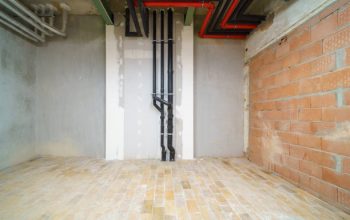It’s critical to first realize that the closing process takes time to complete. To close on a house, it actually takes 48 days on average, though delays can cause it to take longer. Your actions before, during, and following the closing could complicate or even jeopardize your ability to sell your home later on. Avoid these twelve pitfalls to make closing a breeze as you navigate this important time.
Table of Contents
Don’t Do Anything to Compromise Your Credit Score
Changes in credit are one of the most frequent reasons for closing delays, according to Ashwin Dayal, general manager of Orchard Mortgage.
If you had good credit when you applied for your mortgage but bad credit when it was being underwritten, you might not be approved for one at all. By protecting your credit score until your loan is formally closed, you can avoid this situation.
Common reasons for credit scores to drop:
- Applying for a new line of credit or credit card
- Charging big-ticket items
- Reducing your credit limit
- Missing a payment
- Paying off a loan (Although counterintuitive closing out a line of credit can actually make your score drop because it shortens your line of credit history)
- Closing a credit card
Don’t Change Jobs
Changes in your income or assets are among the additional most frequent causes of closing delays.
In the course of the underwriting process, your lender will examine your financial data to make sure you are eligible for your mortgage. You might no longer be eligible for a mortgage if you change jobs or lose your income.
And make sure to notify your employer that you’re applying for a home loan. He says, “Before your loan closes, the lender must receive confirmation from your employer confirming that you are still employed. They are permitted to do this up to 10 days before closing. Tell your employer to be prepared for this call from the lender and to answer right away; otherwise, the lender won’t be able to fund your loan.”
Don’t Go Crazy With Credit
Making significant purchases for your new homes, such as the ideal sectional or a down payment on the pool you want to put in, is included in this. These fees might make you ineligible for a mortgage due to how much they impact your credit score and debt-to-income ratio.
All of the aforementioned things can be done after your mortgage is paid off and you become the owner of your new home. Simply wait until your mortgage is funded to avoid missing out on the home.
Don’t Forget to Change the Locks
When you’ve finally closed, you’ll be handed the keys to your home on closing day, but that doesn’t mean that you have every key that unlocks your house (or your mailbox, or your shed, or any other lock that came with your property). If you don’t take action, spare keys might still be in circulation, making your home susceptible to burglary.
Change your locks immediately to ensure that your home and everything in it is secure. You can DIY this task by buying and installing locks from your local hardware store for less than the $80 to $200 it would cost you to hire a professional locksmith.
Don’t Get Carried Away With Renovations
After closing, you will undoubtedly want to add your unique touches to your home, but you might want to postpone making significant renovations. Home improvement projects can quickly rack up expenses, which can put pressure on your credit cards and savings.
As you get to know your new home, your priorities for renovation may change. For example, you may discover that the deck you had in mind would have taken up a significant portion of the lawn that your children enjoy playing on.
That isn’t to say you can’t change anything. Interior painting is a great way to revitalize your home without using up all of your available credit. Under $1,000 per room, the process can take 6 to 10 hours.
Don’t Ignore Your Neighbors
Everyone has their own preferences, and it’s totally acceptable if you don’t want to become best friends with your neighbors. — but it can’t hurt to briefly introduce yourself. A brief greeting can create a sense of community and help you feel at home.
In case you have any concerns about neighborhood activities or require someone to watch over your house while you’re away, it can be useful, if you feel comfortable doing so, to exchange contact information with a neighbor or two.
Don’t Sleep on Home Maintenance
Even though your house may have been ready to move into at the time of closing, that doesn’t mean you should sit back and relax indefinitely. Instead, keep up with maintenance by developing a plan.
Regular home maintenance carried out on a monthly, quarterly, or yearly basis can go a long way in aiding in the reduction of unforeseen expenses, from keeping your appliances in top condition to maintaining a smoothly functioning HVAC system.
And if you have a yard, don’t forget about landscaping! If you don’t know where to begin, your agent can probably recommend landscapers, builders, and other handymen.
Don’t Leave the Windows Bare
Window treatments are just as much a matter of taste as anything else in your house, but if you’ve just closed on a home, don’t forget to take care of those windows.
Window coverings give you some privacy and let people know that someone now lives in this house, whether you choose to install budget blinds, electric shades, opulent curtains, or your great-grandmother’s hand-sewn drapes.

Don’t Rush into Refinancing
It can be tempting to look into refinancing options as soon as you learn of a lower rate than what you’re paying on your current loan because mortgage interest rates are constantly fluctuating.
Marino, however, advises against jumping right into a dispute.
“They’ll go into a refinance or pull out some equity, which are things I see buyers doing but personally wouldn’t do. Maybe not right away, but maybe within a year of closing. To me, those aren’t really sound financial decisions because if they go ahead and refinance just to shave off a quarter of a point but they don’t factor in that the cost of that refi was $4,000, that’s not a smart idea,” he explains.
Similar to this, Marino suggests avoiding using home equity for unrelated purchases.
“Sometimes people will spend $400,000 on a house, and a year later, it will be worth $460,000. Additionally, they’ll borrow a $30,000 home equity line of credit and possibly make an impulsive car purchase.”
Consult a dependable financial advisor to go over your options if you’re ever not sure whether to refinance.
Don’t Forget to Tie Up Loose Ends
Your address is used for many things in life, including registrations and licenses, bills and statements, and other services. You’ll also need to update these accounts after the closing on a house.
Don’t wait until the move-in day is over to discover that the water for your eagerly anticipated shower hasn’t been turned on. Get a jump on the following right away:
- Change your driver’s license and voter registration
- Transfer or cancel utilities
- Update credit card and banking information
- Set up autopay for your mortgage
- Forward mail to your new address
- Manage subscriptions (like newspapers, periodicals, or anything else delivered directly to your home)
Don’t Refinance
By lowering monthly payments, releasing equity (as with a cash-out refinance), or getting rid of private mortgage insurance, refinancing can hasten the path to debt-free ownership. The majority of loans are eligible for refinancing right away or after a brief waiting period of six to twelve months. You shouldn’t refinance just because you’re qualified to do so, though.
The process of replacing your mortgage with a new one comes with fees, such as:
- Closing costs: These costs can range from 2% to 6% of the loan’s total value.
- Origination fee: This fee typically amounts to 0.5% to 1% of the total loan amount.
- Private mortgage insurance: You might need to add private mortgage insurance, which will increase the cost of your mortgage if your home’s value has dropped and you do not have enough equity to put down the required 20% on a new mortgage.
Depending on your circumstances, lowering interest rates by a tiny fraction of a percentage point might not be enough to pay for these extra expenses. When you purchase a home with Orchard and use Orchard Mortgage, you can benefit from rate reductions in the future. We offer no-fee refinancing for the lifetime of your loan — get started here.
Don’t Forget All the Pesky Admin
Administrative responsibilities are always present when moving, but they are simple to put off until it is too late.
Don’t wait until you’ve been stopped for speeding and the officer asks if your address is current before updating your driver’s license or another form of identification; take care of it right away.
Other life admin to keep in mind after moving may include:
- Forwarding mail
- Updating credit card and banking information
- Changing over utilities and other commodities:
- Water
- Power
- Internet and TV
- Subscription services
- Mobile phone
- Canceling or rescheduling services that may no longer be available or applicable, depending on how far you’ve moved:
- Gym membership
- Grocery delivery
- Storage space
Things You Can DO After Closing
You know what not to do after closing on a house, and here are a few things you can do to make the process even easier.
Keep Track of Paperwork
Your interest rate or homeowner’s insurance policy may need to be double-checked at any time. Put these documents in a dependable, secure location so you can easily access them, as opposed to stuffing them in a drawer and forgetting about them.
To make it even easier to access these documents from anywhere in the world, scan or upload them into a secure file on the cloud.
Greet Your New Neighbors
A new community can be intimidating to join. Making friends with your new neighbors can help you feel more at home, and you may even make a few new ones. If you’re feeling shy, keep in mind that a simple greeting will go a long way rather than inviting everyone over for a pool party.
Make a Home Maintenance Plan
One important way to preserve the value of your home is to keep it in good condition. When it’s time to sell, having a home in good shape can make or break your home sale — 80% of buyers prefer move-in-ready homes to fixer-uppers.
Making home maintenance a regular part of your routine and setting aside money for it will help you stay ahead of it. For your maintenance fund, experts typically advise allocating 1% to 4% of your home’s value annually.
Stay in Touch With Your Real Estate Agent
You already know that your real estate agent will be a helpful asset before, during, and after the sale of your home. They can connect you with reputable contractors, give you advice on the best home improvement projects to increase equity, and assist you when the time comes to move on to a new residence because they are local experts.
Here are twelve things you should not do after closing on a house, containing your credit card, your job, and other daily life. Do you know all these things? Or you have any thoughts?



